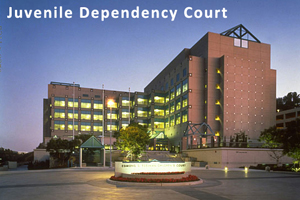Usually, after months of negotiations and struggles, when the parties are unable to resolve the custody issues resulting from a divorce and paternity action, one of the parties may ask the Court to order a 730 evaluation.
The 730 evaluation is a study of the family, the family members and their relationships with the child(ren) of the relationship including the parental rights and responsibilities concerning their children. The evaluation is requested by one of the parties or ordered by a judge when parties cannot resolve what custody arrangement is in “the best interests” for their child(ren). It is unlikely that one party can go to court to present their side of an argument and hope to get a ruling in their favor. That party must be evidence to support a position and a judge, not knowing the family, will depend on the opinion of a mental health professional to describe the parties involved and the nature of their interaction. The evaluation usually includes a recommendation for what would be “in the best interests of the children” and the court is inclined to accept that opinion. The evaluator can be called into court to testify, either to defend or explain the recommendations and sometimes, be ordered to conduct further study into the matter.
Evidence code §730 states:
“When it appears to the court, at any time before or during the trial of an action, that expert is or may be required by the court or a party to the action, the court on its own motion or on motion of any party may appoint one or more experts to investigate, to render a report as may be ordered by the court, and to testify as an expert at the trial of the action relative to the fact or matter as to which the expert evidence is or may be required. The court may fix the compensation for these services, if any, rendered by any person appointed under this section, in addition to any service as a witness, at the amount that seems reasonable to the court. Nothing in this section shall be construed to permit a person to perform any act for which a license is required unless the person holds the appropriate license to lawfully perform the act .”
Who conducts the “730 Evaluation”?
The custody evaluation is conducted by a qualified mental health professional. The qualifications include having the right training and experience set forth by the state. Qualified persons to conduct evaluations can include a licensed clinical psychologist, licensed psychiatrist, Marriage and Family Therapist (MFT), Marriage, Family, and Child Counselor (MFCC), or Licensed Clinical Social Worker (LCSW).
The 730 Evaluation
Under most circumstances if there is any psychological testing to be done, and there usually is, the professional must be qualified to administer, score, and interpret the psychological test. This would usually be done by a psychologist rather than since the testing involves a major part of psychologist schooling.
In most cases, a 730 evaluation will consist of several interviews as well as psychological testing. Interviews are conducted with all adults who are involved with the child(ren), including parents, stepparents, sometimes other relatives, friends, and teachers who have significant roles in the child’s life.
The Evaluators Recommendations
After completion of the evaluation, the evaluator writes up and submits a report to the court or judge and to the two attorneys representing the parties. The 730 evaluation usually contains “recommendations” by the evaluators.
If the evaluation report is acceptable to both parties, the parties can agree to accept the complete evaluation into evidence. If there are disagreements, the parties will have a chance to argue their points in regards to the findings contained in the report and challenge its recommendations.
Upon the court receiving the report, most judges give heavy weight and consideration to the recommendations and findings of the evaluator found and submitted in the report. Since the judge is the ultimate authority in making an order and not the evaluator, they can use their judicial discretion to give as much weight as they decide to the report when making a final order.





